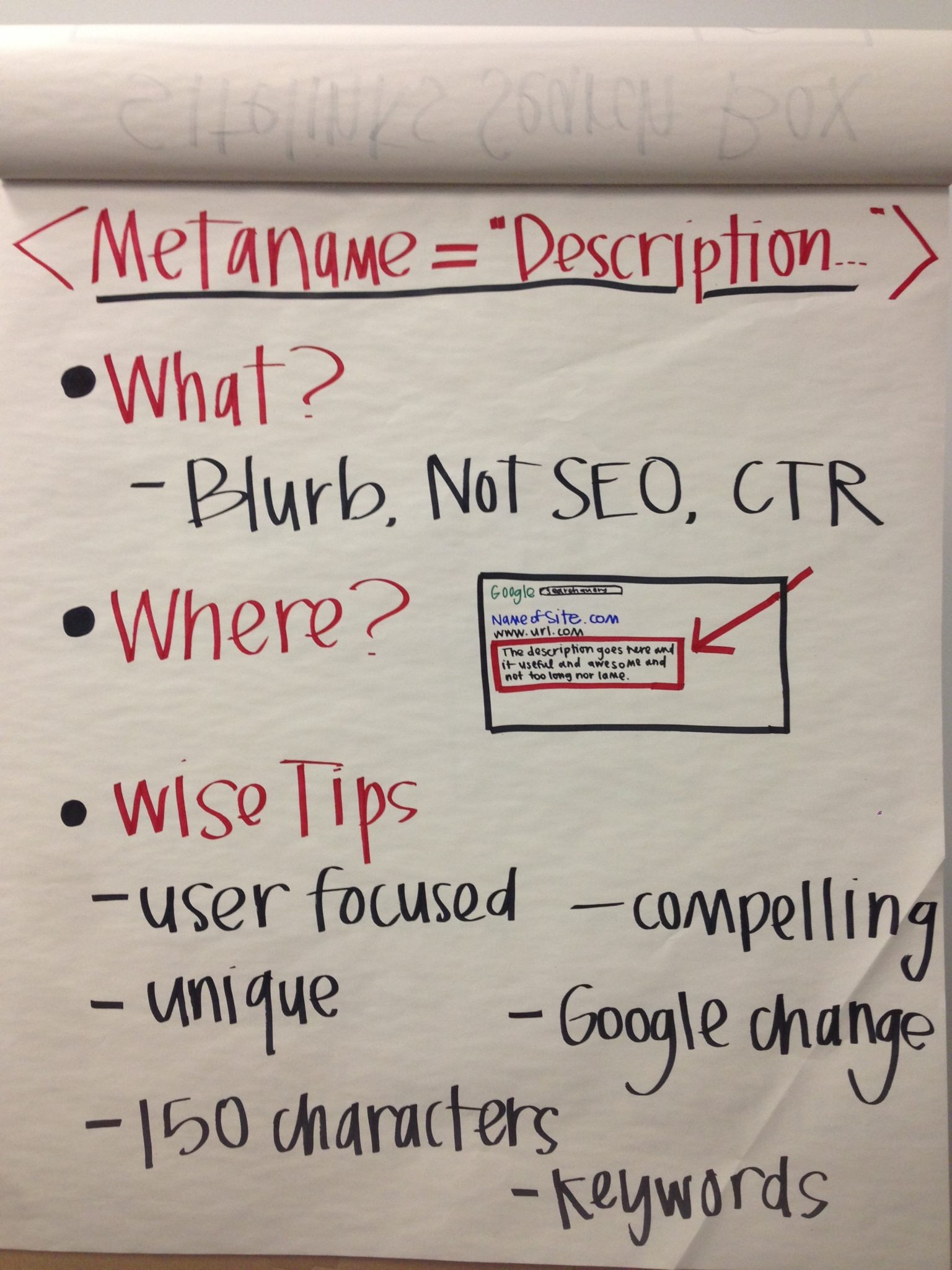Hey there Boosters! Welcome to the Booster Seat. My name is Andrew Eagar and today we will be talking about Meta Descriptions, specifically those descriptions you put under your website so that people can see you. Well, let’s get started. Take a walk with me.
So when we talk about meta descriptions, we’re talking about the little blurbs describing a page on your website. Also, they aren’t really SEO. For a long time now, meta descriptions haven’t really been impactful in SEO keyword ranking. You may be asking yourself, “Why are we even talking about that?” We’re talking about it because of CTR (click through rate). CTR is when somebody goes to Google and searches for a keyword and your website shows up on the search results page (the SERP). When somebody clicks on that, that’s a “click through.” So, to increase your click-through rate, you want to draw people in with your meta-description.
Where is the Meta Description?
Where you see the meta description is actually on the SERP page. You can actually say what is in that spot. It’s like your own mini-advertisement that you don’t have to pay for because Google is going to show it anyway. If you were going to draw someone into your business or into your website, what would you say? THAT thing is usually what you want to write as your meta description, so you can sell people on it.

Wise Tips
User-focused
Like all SEO factors, it needs to be user-focused. Think about the end user. What would be helpful to somebody? What would help someone understand that they want to click on that page? That’s what you want to write.
Compelling
You want it to be compelling. DRAW PEOPLE IN! That’s what these meta descriptions to be used for – to draw people from the SERP page.
Unique
Just as we talked about a couple weeks ago, duplicate content is devaluing. If you have duplicate meta descriptions across multiple pages, you are devaluing that description, and, in Google’s eyes, you are devaluing that page. Again, be unique; every page should have it’s own unique meta description.
Google Changes
As always, Google can change this stuff and the things that they display on the SERP. They can change the meta description. Now usually when Google changes it, they usually change it to your benefit. They usually include certain key phrases, or sometimes they’ll change them to make them a little bit shorter, and they usually make them better, but that doesn’t mean you shouldn’t write and optimize your own.
Keep it to 150 characters
Another wise tip is to keep your characters down. Really, about 150 characters is just right. Between 150-160 is about the optimal length. If you have a longer description, you’ll get a few words cut off and then a “…” . What that means for your click-through rates and your user, is that you’re really not giving your users the full experience. Why not optimize all 150 characters for what your users want instead of having some characters that won’t even be seen? SO, again, about 150 is about right.
Keywords
Lastly, for SEO purposes and even for the click-through rate, keywords are important here. For getting your website ranked, it doesn’t really have a factor, but if someone searches for a keyword and you happen to have that in your description, Google will bold that phrase, and bold draws attention to it. So, when a user searches for it, their eyes are going over all the results and are attracted to the bolded phrases, so you do want keywords in there that help describe the page.
Well, I hope that’s helpful for your meta descriptions. I’d love to see your questions and comments below.
Stay cool.
